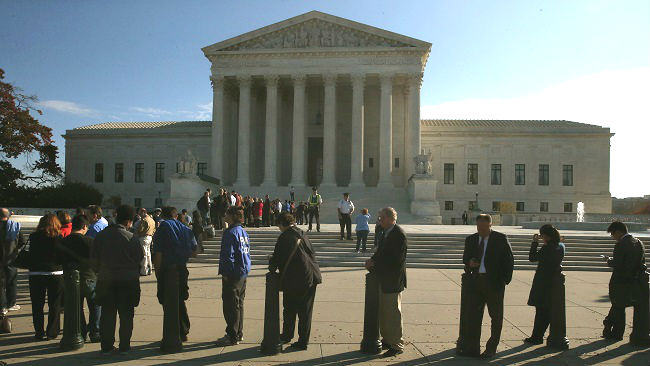
If you’re not entirely sure what “gerrymandering” is, then you should probably amend this particular knowledge gap as soon as possible. Why? Because it’s the legal process by which elected officials determine the size and scope of electoral districts, more often than not for their or their party’s own advantage, and it has led to many high profile court cases as of late. Even former President Barack Obama has vowed to fight against the practice’s misuses and abuses during his post-presidency, though the Supreme Court of the United States may beat him to the punch.
That’s because the SCOTUS has agreed to hear a case out of Wisconsin concerning the partisan nature of gerrymandering, and whether or not this renders the practice unconstitutional. According to a New York Times story last November, a three-judge panel ruled that the Republican-controlled state legislature’s redistricting in 2011 unfairly favored their party over Democrats, and that such partisan gerrymandering was unconstitutional. The federal court’s decision was the first time in three decades that such a ruling had been made on a redistricting case, thereby setting the stage for a possible showdown in the Supreme Court.
Politico reports that the State of Wisconsin requested that the SCOTUS either overturn the three-judge panel’s ruling or put the matter on hold, but Monday’s announcement means the high court will hear the case sometime in the fall. Meanwhile, CNN notes that while prior cases have concluded partisan gerrymandering to be illegal, none have quantified the matter in explicit terms for future benefit. As a result, CNN analyst and law professor Steve Vladeck adds this case could have “enormous ramifications” for the practice of redistricting — not just in Wisconsin, but in all 50 states.
“The justices have never been able to identify the specific point at which states cross the constitutional line. In this case, a lower court held that Wisconsin had indeed crossed that line,” says Vladeck. “If the justices agree, it would be the first time the court has articulated a constitutional rule in this context, which could — and likely would — have enormous ramifications nationwide.”
Meanwhile, others have a different theory about the Wisconsin gerrymandering case’s real significance…
https://twitter.com/morninggloria/status/876807601719308292
